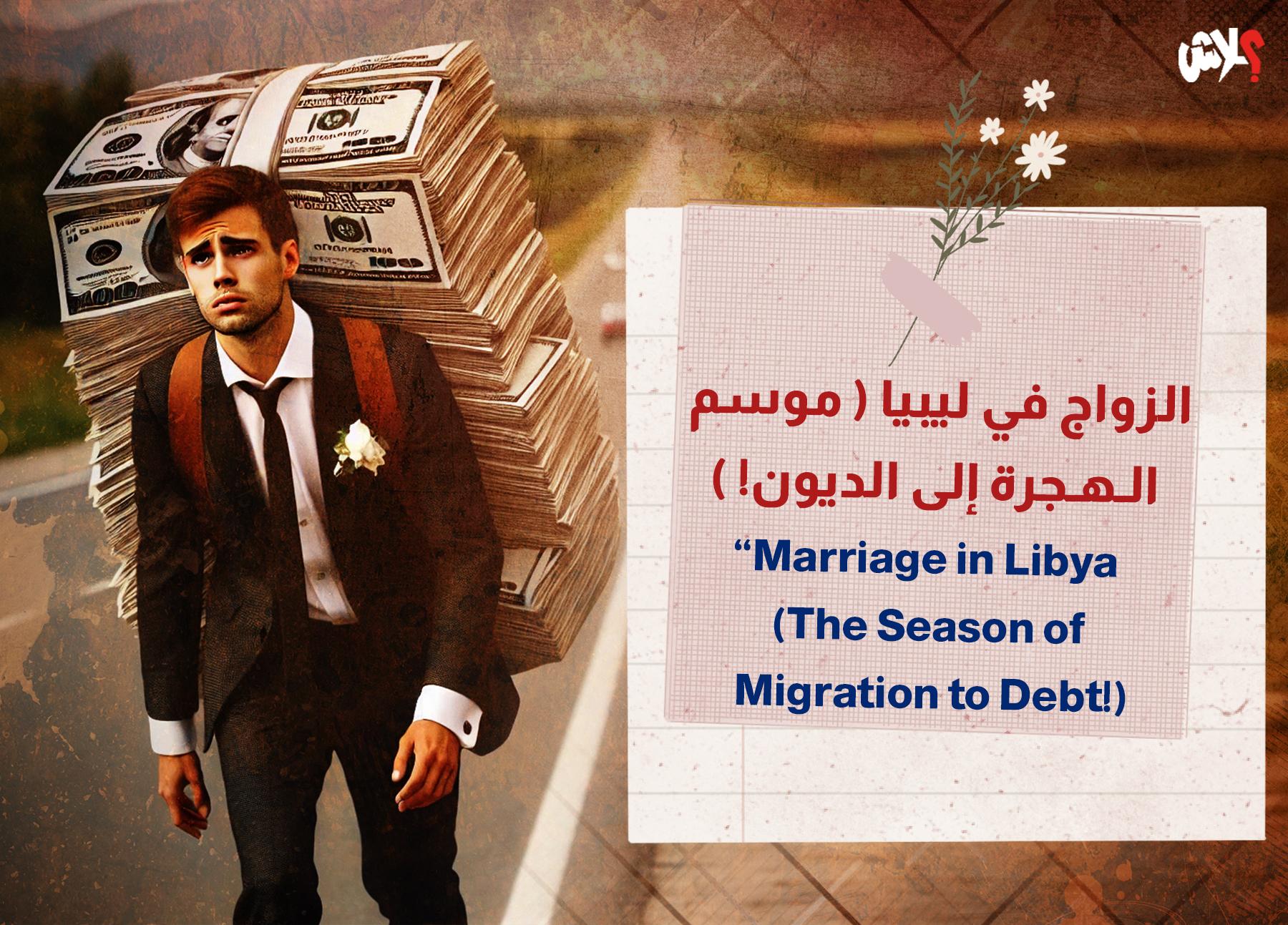Marriage in Libya: A Migration Season… to Debt!
Weddings in the past were like bedtime stories we told our children seven nights and seven days of genuine joy, dancing, blessings, and heartfelt celebration. Families of the bride and groom would bask in true happiness, with neighbors near and far joining in the festivities. But today, sadly, things have changed completely.
Weddings have turned into royal coronation spectacles lavish, extravagant, and burdensome. Stunning decor, blaring music, and costs that leave the groom repeatedly rethinking his decision. The bride, meanwhile, is often consumed with finding the perfect dress and crafting the ideal image to become the queen of the event. In Libya today, weddings are no longer about two people uniting they’ve become intense social competitions. Even the guests have unwittingly become part of the rivalry: dresses are displayed as if in an international beauty contest, and the judgments are based on price tags and elegance. Everyone is comparing who wore it better? Who looked more glamorous? Who stood out?
As for the bride, she’s often robbed of real joy, lost in a whirlwind of exhausting details. The poor groom looks more like a background actor in a scene that was supposed to be about him and his partner.
Before the wedding even begins, there’s the engagement phase or what could be called the Libyan version of “The Grand Renaissance Dam negotiations”! In the past, the groom’s family would visit the bride’s family, have a simple conversation, agree on a date, and that was it. Now? It’s a complex, high-stakes negotiation: how many guests? What color for the decor? What type of dessert? How will it be served?
The essence of marriage has been lost. What should be the beginning of a shared life now feels more like a massive transaction. The groom often sits silently in the corner during these heated talks, wondering: Is all this really for me? The bride, meanwhile, is buried in thoughts of her gown and whether she’ll resemble a fairytale princess.
No discussion about modern Libyan weddings would be complete without addressing the crushing costs. In the past, it was enough to gather in a modest venue, serve traditional food, and dance in joy. Today, the event must meet a certain social standard: luxurious halls, extravagant decorations, gourmet meals, and even the chocolates must be of a very specific high-end brand.
This puts immense pressure on the groom, who may have to take out loans or sell his car if he owns one at all just to pay the bill. And amidst all this extravagance, one simple question arises: Where is the happiness? Are the bride and groom truly enjoying their special day, or is this just an effort to win the title of “best wedding in the family”? More and more, weddings seem less like celebrations and more like theatrical performances, where every detail is meticulously curated decor, music, food, even tablecloth colors.
While the two families delight in this performance, the couple at the center of it all may be drowning in exhaustion or anxiety.
The question many ask today is: Where is the blessing? Why have weddings lost that warm, simple atmosphere that used to bring people together? The answer isn’t simple, but it is deeply tied to the obsession with appearances, status, and false luxury. Perhaps the solution is to return to our roots to weddings filled with love, simplicity, and genuine connection. True joy isn’t measured by guest counts or grandeur but by the couple’s own happiness.
So, is a wedding today a celebration of a sacred bond or a social pageant gone overboard?
Libyan weddings now reflect more than just personal unions; they mirror the society’s aspirations, tensions, and insecurities. If things continue this way, marriage may shift from being a source of joy to a source of overwhelming stress and debt.
Let’s not forget: a wedding isn’t about showmanship it’s about love, compassion, and understanding. It’s not about impressing others it’s about two people building a life together. Let’s bring back the baraka that once made every wedding a true celebration, not an occasion for debt and pressure.

